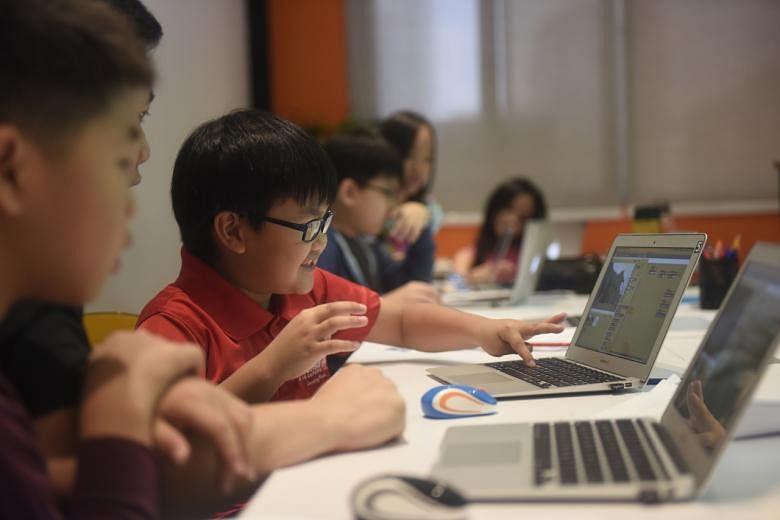SINGAPORE - Singapore has been ranked fourth out of 30 countries for having the best online safety for children in the inaugural Child Online Safety Index (Cosi) by international think- tank DQ Institute.
Coming in after Spain, Australia and Malaysia, the Republic fared well in disciplined digital use - which refers to the amount of social media and gaming activity children engage in - as well as digital competency, for children's ability to mitigate cyber risks and maximise the positive use of technology.
Singapore scored lower in terms of social infrastructure, which includes the legal framework, although this may be slightly skewed as some of the data for this category was taken from a 2019 external survey which the Republic had not been a part of.
Over 145,400 children from around the world were surveyed for the Cosi, which is partly funded by Singtel. This was combined with data from external sources such as the International Telecommunication Union and the Economist Intelligence Unit.
Dr Yuhyun Park, founder of the DQ Institute, said it will review the index's methodology annually in the future.
Despite Singapore's above-average scores overall, the reality remains that far too many children here are exposed to potentially serious risks online, said Dr Park.
Nearly one in five kids aged eight to 12 surveyed has experienced "risky contact" of some sort, which was defined as meeting online strangers in real life or getting unwanted online contact of a sexual nature. That statistic spikes to one in three among teenagers.
In total, 11,963 children and adolescents in Singapore were surveyed.
Dr Park told The Straits Times: "What the results tell us is that even high-ranked countries on the index cannot be complacent. In Singapore and around the world, children are consistently being exposed to serious risks online and there needs to be a lot more done to help them."
Children in Singapore also face problems related to cyber bullying as well as reputational risks, which refer to situations where a compromising photograph of a child, for example, is shared online.
Two-fifths of children aged eight to 12 have been exposed to cyber bullying, either as bullies themselves or as victims, with the number going up to over half for teenagers.
Meanwhile, a third of children in the younger age group have encountered reputational risks, with almost half of all teenagers having experienced them in some form.
Children are not immune to cyber threats either - a problem that some may associate only with adults and scammers.
According to the surveys, 23 per cent of kids in the younger age group have encountered cyber threats such as phishing or hacking, while half of all teenagers have also encountered them.
Dr Park said: "Parents, teachers and ICT (information and communications technology) companies need to work together to help these kids be more aware of the dangers of online activity. What they are facing is truly a 'cyber pandemic'."


